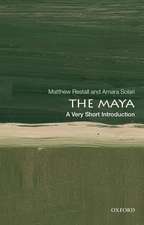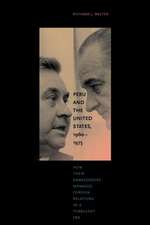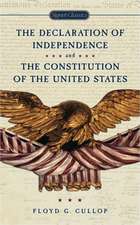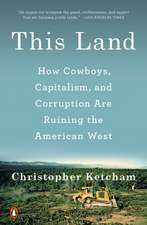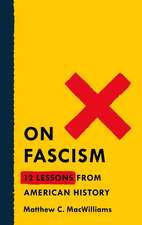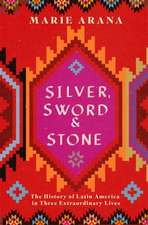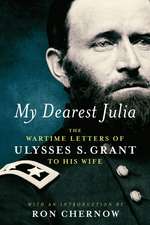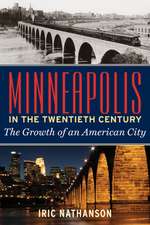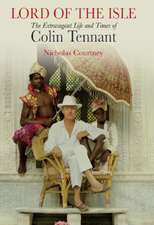Alexander Hamilton: Great Lives
Autor Ron Chernowen Limba Engleză Paperback – 6 aug 2017
| Toate formatele și edițiile | Preț | Express |
|---|---|---|
| Paperback (2) | 87.90 lei 3-5 săpt. | +62.30 lei 6-12 zile |
| Head of Zeus – 6 aug 2020 | 87.90 lei 3-5 săpt. | +62.30 lei 6-12 zile |
| Penguin Books – 28 feb 2005 | 150.92 lei 3-5 săpt. | +52.34 lei 6-12 zile |
| Hardback (1) | 265.68 lei 3-5 săpt. | |
| Penguin Press – 31 mar 2004 | 265.68 lei 3-5 săpt. |
Din seria Great Lives
- 23%
 Preț: 39.01 lei
Preț: 39.01 lei - 21%
 Preț: 76.81 lei
Preț: 76.81 lei -
 Preț: 57.08 lei
Preț: 57.08 lei -
 Preț: 58.72 lei
Preț: 58.72 lei -
 Preț: 57.90 lei
Preț: 57.90 lei - 21%
 Preț: 88.75 lei
Preț: 88.75 lei - 23%
 Preț: 84.21 lei
Preț: 84.21 lei - 24%
 Preț: 53.30 lei
Preț: 53.30 lei -
 Preț: 56.48 lei
Preț: 56.48 lei -
 Preț: 52.35 lei
Preț: 52.35 lei -
 Preț: 58.94 lei
Preț: 58.94 lei -
 Preț: 59.35 lei
Preț: 59.35 lei -
 Preț: 55.61 lei
Preț: 55.61 lei -
 Preț: 55.20 lei
Preț: 55.20 lei -
 Preț: 62.84 lei
Preț: 62.84 lei -
 Preț: 55.85 lei
Preț: 55.85 lei -
 Preț: 58.59 lei
Preț: 58.59 lei -
 Preț: 48.89 lei
Preț: 48.89 lei - 30%
 Preț: 171.08 lei
Preț: 171.08 lei - 33%
 Preț: 99.26 lei
Preț: 99.26 lei - 37%
 Preț: 122.73 lei
Preț: 122.73 lei - 37%
 Preț: 124.15 lei
Preț: 124.15 lei
Preț: 83.57 lei
Preț vechi: 116.00 lei
-28% Nou
Puncte Express: 125
Preț estimativ în valută:
15.99€ • 16.70$ • 13.23£
15.99€ • 16.70$ • 13.23£
Cartea nu se mai tipărește
Doresc să fiu notificat când acest titlu va fi disponibil:
Se trimite...
Preluare comenzi: 021 569.72.76
Specificații
ISBN-13: 9781786690036
ISBN-10: 1786690039
Pagini: 832
Ilustrații: 2 x 8pp b&w illustrations
Dimensiuni: 229 x 148 x 55 mm
Greutate: 0.89 kg
Editura: Head of Zeus
Colecția Great Lives
Seria Great Lives
ISBN-10: 1786690039
Pagini: 832
Ilustrații: 2 x 8pp b&w illustrations
Dimensiuni: 229 x 148 x 55 mm
Greutate: 0.89 kg
Editura: Head of Zeus
Colecția Great Lives
Seria Great Lives
Notă biografică
Ron Chernow is the prize-winning author of five previous books. His first, The House of Morgan, won the National Book Award. His two most recent books, Alexander Hamilton and Titan: The Life of John D. Rockefeller, were both nominated for the National Book Critics Circle Award in biography. Chernow lives in Brooklyn, New York.
Cuprins
Author's Note
Prologue: The Oldest Revolutionary War Widow
One: The Castaways
Two: Hurricane
Three: The Collegian
Four: The Pen and the Sword
Five: The Little Lion
Six: A Frenzy of Valor
Seven: The Lovesick Colonel
Eight: Glory
Nine: Raging Billows
Ten: A Grave, Silent, Strange Sort of Animal
Eleven: Ghosts
Twelve: August and Respectable Assembly
Thirteen: Publius
Fourteen: Putting the Machine in Motion
Fifteen: Villainous Business
Sixteen: Dr. Pangloss
Seventeen: The First Town in America
Eighteen: Of Avarice and Enterprise
Nineteen: City of the Future
Twenty: Corrupt Squadrons
Twenty-One: Exposure
Twenty-Two: Stabbed in the Dark
Twenty-Three: Citizen Genet
Twenty-Four: A Disagreeable Trade
Twenty-Five: Seas of Blood
Twenty-Six: The Wicked Insurgents of the West
Twenty-Seven: Sugar Plums and Toys
Twenty-Eight: Spare Cassius
Twenty-Nine: The Man in the Glass Bubble
Thirty: Flying Too Near the Sun
Thirty-One: An Instrument of Hell
Thirty-Two: Reign of Witches
Thirty-Three: Works Godly and Ungodly
Thirty-Four: In an Evil Hour
Thirty-Five: Gusts of Passion
Thirty-Six: In a Very Belligerent Humor
Thirty-Seven: Deadlock
Thirty-Eight: A World Full of Folly
Thirty-Nine: Pamphlet Wars
Forty: The Price of Truth
Forty-One: A Despicable Opinion
Forty-Two: Fatal Errand
Forty-Three: The Melting Scene
Epilogue: Eliza
Acknowledgments
Notes
Bibliography
Selected Books, Pamphlets, and Dissertations
Selected Articles
Index
Prologue: The Oldest Revolutionary War Widow
One: The Castaways
Two: Hurricane
Three: The Collegian
Four: The Pen and the Sword
Five: The Little Lion
Six: A Frenzy of Valor
Seven: The Lovesick Colonel
Eight: Glory
Nine: Raging Billows
Ten: A Grave, Silent, Strange Sort of Animal
Eleven: Ghosts
Twelve: August and Respectable Assembly
Thirteen: Publius
Fourteen: Putting the Machine in Motion
Fifteen: Villainous Business
Sixteen: Dr. Pangloss
Seventeen: The First Town in America
Eighteen: Of Avarice and Enterprise
Nineteen: City of the Future
Twenty: Corrupt Squadrons
Twenty-One: Exposure
Twenty-Two: Stabbed in the Dark
Twenty-Three: Citizen Genet
Twenty-Four: A Disagreeable Trade
Twenty-Five: Seas of Blood
Twenty-Six: The Wicked Insurgents of the West
Twenty-Seven: Sugar Plums and Toys
Twenty-Eight: Spare Cassius
Twenty-Nine: The Man in the Glass Bubble
Thirty: Flying Too Near the Sun
Thirty-One: An Instrument of Hell
Thirty-Two: Reign of Witches
Thirty-Three: Works Godly and Ungodly
Thirty-Four: In an Evil Hour
Thirty-Five: Gusts of Passion
Thirty-Six: In a Very Belligerent Humor
Thirty-Seven: Deadlock
Thirty-Eight: A World Full of Folly
Thirty-Nine: Pamphlet Wars
Forty: The Price of Truth
Forty-One: A Despicable Opinion
Forty-Two: Fatal Errand
Forty-Three: The Melting Scene
Epilogue: Eliza
Acknowledgments
Notes
Bibliography
Selected Books, Pamphlets, and Dissertations
Selected Articles
Index
Recenzii
"...[N]obody has captured Hamilton better than Chernow..." —The New York Times Book Review
"...[A] biography commensurate with Hamilton's character, as well as the full, complex context of his unflaggingly active life.... This is a fine work that captures Hamilton's life with judiciousness and verve." —Publishers Weekly
"A splendid life of an enlightened reactionary and forgotten Founding Father. Literate and full of engaging historical asides. By far the best of the many lives of Hamilton now in print, and a model of the biographer’s art."—Kirkus Reviews (Starred Review)
"A robust full-length portrait, in my view the best ever written, of the most brilliant, charismatic and dangerous founder of them all." —Joseph J. Ellis, author of Founding Brothers: The Revolutionary Generation
"A brilliant historian has done it again! The thoroughness and integrity of Ron Chernow’s research shines forth on every page of his Alexander Hamilton. He has created a vivid and compelling portrait of a remarkable man—and at the same time he has made a monumental contribution to our understanding of the beginnings of the American Republic.” —Robert A. Caro, author of The Power Broker and The Years of Lyndon Johnson
"Alexander Hamilton was one of the most brilliant men of his brilliant time, and one of the most fascinating figures in all of American history. His rocketing life-story is utterly amazing. His importance to the founding of the new nation, and thus to the whole course of American history, can hardly be overstated. And so Ron Chernow's new Hamilton could not be more welcome. This is grand-scale biography at its best—thorough, insightful, consistently fair, and superbly written. It clears away more than a few shop-worn misconceptions about Hamilton, gives credit where credit is due, and is both clear-eyed and understanding about its very human subject. Its numerous portraits of the complex, often conflicting cast of characters are deft and telling. The whole life and times are here in a genuinely great book." —David McCullough, author of John Adams
"...[A] biography commensurate with Hamilton's character, as well as the full, complex context of his unflaggingly active life.... This is a fine work that captures Hamilton's life with judiciousness and verve." —Publishers Weekly
"A splendid life of an enlightened reactionary and forgotten Founding Father. Literate and full of engaging historical asides. By far the best of the many lives of Hamilton now in print, and a model of the biographer’s art."—Kirkus Reviews (Starred Review)
"A robust full-length portrait, in my view the best ever written, of the most brilliant, charismatic and dangerous founder of them all." —Joseph J. Ellis, author of Founding Brothers: The Revolutionary Generation
"A brilliant historian has done it again! The thoroughness and integrity of Ron Chernow’s research shines forth on every page of his Alexander Hamilton. He has created a vivid and compelling portrait of a remarkable man—and at the same time he has made a monumental contribution to our understanding of the beginnings of the American Republic.” —Robert A. Caro, author of The Power Broker and The Years of Lyndon Johnson
"Alexander Hamilton was one of the most brilliant men of his brilliant time, and one of the most fascinating figures in all of American history. His rocketing life-story is utterly amazing. His importance to the founding of the new nation, and thus to the whole course of American history, can hardly be overstated. And so Ron Chernow's new Hamilton could not be more welcome. This is grand-scale biography at its best—thorough, insightful, consistently fair, and superbly written. It clears away more than a few shop-worn misconceptions about Hamilton, gives credit where credit is due, and is both clear-eyed and understanding about its very human subject. Its numerous portraits of the complex, often conflicting cast of characters are deft and telling. The whole life and times are here in a genuinely great book." —David McCullough, author of John Adams
Extras
PROLOGUE
THE OLDEST REVOLUTIONARY WAR WIDOW
In the early 1850s, few pedestrians strolling past the house on H Street in Washington, near the White House, realized that the ancient widow seated by the window, knitting and arranging flowers, was the last surviving link to the glory days of the early republic. Fifty years earlier, on a rocky, secluded ledge overlooking the Hudson River in Weehawken, New Jersey, Aaron Burr, the vice president of the United States, had fired a mortal shot at her husband, Alexander Hamilton, in a misbegotten effort to remove the man Burr regarded as the main impediment to the advancement of his career. Hamilton was then forty-nine years old. Was it a benign or a cruel destiny that had compelled the widow to outlive her husband by half a century, struggling to raise seven children and surviving almost until the eve of the Civil War?
Elizabeth Schuyler Hamilton-purblind and deaf but gallant to the end-was a stoic woman who never yielded to self-pity. With her gentle manner, Dutch tenacity, and quiet humor, she clung to the deeply rooted religious beliefs that had abetted her reconciliation to the extraordinary misfortunes she had endured. Even in her early nineties, she still dropped to her knees for family prayers. Wrapped in shawls and garbed in the black bombazine dresses that were de rigueur for widows, she wore a starched white ruff and frilly white cap that bespoke a simpler era in American life. The dark eyes that gleamed behind large metal-rimmed glasses-those same dark eyes that had once enchanted a young officer on General George Washington's staff-betokened a sharp intelligence, a fiercely indomitable spirit, and a memory that refused to surrender the past.
In the front parlor of the house she now shared with her daughter, Eliza Hamilton had crammed the faded memorabilia of her now distant marriage. When visitors called, the tiny, erect, white-haired lady would grab her cane, rise gamely from a black sofa embroidered with a floral pattern of her own design, and escort them to a Gilbert Stuart painting of George Washington. She motioned with pride to a silver wine cooler, tucked discreetly beneath the center table, that had been given to the Hamiltons by Washington himself. This treasured gift retained a secret meaning for Eliza, for it had been a tacit gesture of solidarity from Washington when her husband was ensnared in the first major sex scandal in American history. The tour's highlight stood enshrined in the corner: a marble bust of her dead hero, carved by an Italian sculptor, Giuseppe Ceracchi, during Hamilton's heyday as the first treasury secretary. Portrayed in the classical style of a noble Roman senator, a toga draped across one shoulder, Hamilton exuded a brisk energy and a massive intelligence in his wide brow, his face illumined by the half smile that often played about his features. This was how Eliza wished to recall him: ardent, hopeful, and eternally young. "That bust I can never forget," one young visitor remembered, "for the old lady always paused before it in her tour of the rooms and, leaning on her cane, gazed and gazed, as if she could never be satisfied."
For the select few, Eliza unearthed documents written by Hamilton that qualified as her sacred scripture: an early hymn he had composed or a letter he had drafted during his impoverished boyhood on St. Croix. She frequently grew melancholy and longed for a reunion with "her Hamilton," as she invariably referred to him. "One night, I remember, she seemed sad and absent-minded and could not go to the parlor where there were visitors, but sat near the fire and played backgammon for a while," said one caller. "When the game was done, she leaned back in her chair a long time with closed eyes, as if lost to all around her. There was a long silence, broken by the murmured words, 'I am so tired. It is so long. I want to see Hamilton.'"1
Eliza Hamilton was committed to one holy quest above all others: to rescue her husband's historical reputation from the gross slanders that had tarnished it. For many years after the duel, Thomas Jefferson, John Adams, and other political enemies had taken full advantage of their eloquence and longevity to spread defamatory anecdotes about Hamilton, who had been condemned to everlasting silence. Determined to preserve her husband's legacy, Eliza enlisted as many as thirty assistants to sift through his tall stacks of papers. Unfortunately, she was so self-effacing and so reverential toward her husband that, though she salvaged every scrap of his writing, she apparently destroyed her own letters. The capstone of her monumental labor, her life's "dearest object," was the publication of a mammoth authorized biography that would secure Hamilton's niche in the pantheon of the early republic. It was a long, exasperating wait as one biographer after another discarded the project or expired before its completion. Almost by default, the giant enterprise fell to her fourth son, John Church Hamilton, who belatedly disgorged a seven-volume history of his father's exploits. Before this hagiographic tribute was completed, however, Eliza Hamilton died at ninety-seven on November 9, 1854.
Distraught that their mother had waited vainly for decades to see her husband's life immortalized, Eliza Hamilton Holly scolded her brother for his overdue biography. "Lately in my hours of sadness, recurring to such interests as most deeply affected our blessed Mother...I could recall none more frequent or more absorbent than her devotion to our Father. When blessed memory shows her gentle countenance and her untiring spirit before me, in this one great and beautiful aspiration after duty, I feel the same spark ignite and bid me...to seek the fulfillment of her words: 'Justice shall be done to the memory of my Hamilton.'"2 It was, Eliza Hamilton Holly noted pointedly, the imperative duty that Eliza had bequeathed to all her children: Justice shall be done to the memory of my Hamilton.
Well, has justice been done? Few figures in American history have aroused such visceral love or loathing as Alexander Hamilton. To this day, he seems trapped in a crude historical cartoon that pits "Jeffersonian democracy" against "Hamiltonian aristocracy." For Jefferson and his followers, wedded to their vision of an agrarian Eden, Hamilton was the American Mephistopheles, the proponent of such devilish contrivances as banks, factories, and stock exchanges. They demonized him as a slavish pawn of the British Crown, a closet monarchist, a Machiavellian intriguer, a would-be Caesar. Noah Webster contended that Hamilton's "ambition, pride, and overbearing temper" had destined him "to be the evil genius of this country."3 Hamilton's powerful vision of American nationalism, with states subordinate to a strong central government and led by a vigorous executive branch, aroused fears of a reversion to royal British ways. His seeming solicitude for the rich caused critics to portray him as a snobbish tool of plutocrats who was contemptuous of the masses. For another group of naysayers, Hamilton's unswerving faith in a professional military converted him into a potential despot. "From the first to the last words he wrote," concluded historian Henry Adams, "I read always the same Napoleonic kind of adventuredom."4 Even some Hamilton admirers have been unsettled by a faint tincture of something foreign in this West Indian transplant; Woodrow Wilson grudgingly praised Hamilton as "a very great man, but not a great American."5
Yet many distinguished commentators have echoed Eliza Hamilton's lament that justice has not been done to her Hamilton. He has tended to lack the glittering multivolumed biographies that have burnished the fame of other founders. The British statesman Lord Bryce singled out Hamilton as the one founding father who had not received his due from posterity. In The American Commonwealth, he observed, "One cannot note the disappearance of this brilliant figure, to Europeans the most interesting in the early history of the Republic, without the remark that his countrymen seem to have never, either in his lifetime or afterwards, duly recognized his splendid gifts."6 During the robust era of Progressive Republicanism, marked by brawny nationalism and energetic government, Theodore Roosevelt took up the cudgels and declared Hamilton "the most brilliant American statesman who ever lived, possessing the loftiest and keenest intellect of his time."7 His White House successor, William Howard Taft, likewise embraced Hamilton as "our greatest constructive statesman."8 In all probability, Alexander Hamilton is the foremost political figure in American history who never attained the presidency, yet he probably had a much deeper and more lasting impact than many who did.
Hamilton was the supreme double threat among the founding fathers, at once thinker and doer, sparkling theoretician and masterful executive. He and James Madison were the prime movers behind the summoning of the Constitutional Convention and the chief authors of that classic gloss on the national charter, The Federalist, which Hamilton supervised. As the first treasury secretary and principal architect of the new government, Hamilton took constitutional principles and infused them with expansive life, turning abstractions into institutional realities. He had a pragmatic mind that minted comprehensive programs. In contriving the smoothly running machinery of a modern nation-state-including a budget system, a funded debt, a tax system, a central bank, a customs service, and a coast guard-and justifying them in some of America's most influential state papers, he set a high-water mark for administrative competence that has never been equaled. If Jefferson provided the essential poetry of American political discourse, Hamilton established the prose of American statecraft. No other founder articulated such a clear and prescient vision of America's future political, military, and economic strength or crafted such ingenious mechanisms to bind the nation together.
Hamilton's crowded years as treasury secretary scarcely exhaust the epic story of his short life, which was stuffed with high drama. From his illegitimate birth on Nevis to his bloody downfall in Weehawken, Hamilton's life was so tumultuous that only an audacious novelist could have dreamed it up. He embodied an enduring archetype: the obscure immigrant who comes to America, re-creates himself, and succeeds despite a lack of proper birth and breeding. The saga of his metamorphosis from an anguished clerk on St. Croix to the reigning presence in George Washington's cabinet offers both a gripping personal story and a panoramic view of the formative years of the republic. Except for Washington, nobody stood closer to the center of American politics from 1776 to 1800 or cropped up at more turning points. More than anyone else, the omnipresent Hamilton galvanized, inspired, and scandalized the newborn nation, serving as the flash point for pent-up conflicts of class, geography, race, religion, and ideology. His contemporaries often seemed defined by how they reacted to the political gauntlets that he threw down repeatedly with such defiant panache.
Hamilton was an exuberant genius who performed at a fiendish pace and must have produced the maximum number of words that a human being can scratch out in forty-nine years. If promiscuous with his political opinions, however, he was famously reticent about his private life, especially his squalid Caribbean boyhood. No other founder had to grapple with such shame and misery, and his early years have remained wrapped in more mystery than those of any other major American statesman. While not scanting his vibrant intellectual life, I have tried to gather anecdotal material that will bring this cerebral man to life as both a public and a private figure. Charming and impetuous, romantic and witty, dashing and headstrong, Hamilton offers the biographer an irresistible psychological study. For all his superlative mental gifts, he was afflicted with a touchy ego that made him querulous and fatally combative. He never outgrew the stigma of his illegitimacy, and his exquisite tact often gave way to egregious failures of judgment that left even his keenest admirers aghast. If capable of numerous close friendships, he also entered into titanic feuds with Jefferson, Madison, Adams, Monroe, and Burr.
The magnitude of Hamilton's feats as treasury secretary has overshadowed many other facets of his life: clerk, college student, youthful poet, essayist, artillery captain, wartime adjutant to Washington, battlefield hero, congressman, abolitionist, Bank of New York founder, state assemblyman, member of the Constitutional Convention and New York Ratifying Convention, orator, lawyer, polemicist, educator, patron saint of the New-York Evening Post, foreign-policy theorist, and major general in the army. Boldly uncompromising, he served as catalyst for the emergence of the first political parties and as the intellectual fountainhead for one of them, the Federalists. He was a pivotal force in four consecutive presidential elections and defined much of America's political agenda during the Washington and Adams administrations, leaving copious commentary on virtually every salient issue of the day.
Earlier generations of biographers had to rely on only a meager portion of his voluminous output. Between 1961 and 1987, Harold C. Syrett and his doughty editorial team at Columbia University Press published twenty-seven thick volumes of Hamilton's personal and political papers. Julius Goebel, Jr., and his staff added five volumes of legal and business papers to the groaning shelf, bringing the total haul to twenty-two thousand pages. These meticulous editions are much more than exhaustive compilations of Hamilton's writings: they are a scholar's feast, enriched with expert commentary as well as contemporary newspaper extracts, letters, and diary entries. No biographer has fully harvested these riches. I have supplemented this research with extensive archival work that has uncovered, among other things, nearly fifty previously undiscovered essays written by Hamilton himself. To retrieve his early life from its often impenetrable obscurity, I have also scoured records in Scotland, England, Denmark, and eight Caribbean islands, not to mention many domestic archives. The resulting portrait, I hope, will seem fresh and surprising even to those best versed in the literature of the period.
It is an auspicious time to reexamine the life of Hamilton, who was the prophet of the capitalist revolution in America. If Jefferson enunciated the more ample view of political democracy, Hamilton possessed the finer sense of economic opportunity. He was the messenger from a future that we now inhabit. We have left behind the rosy agrarian rhetoric and slaveholding reality of Jeffersonian democracy and reside in the bustling world of trade, industry, stock markets, and banks that Hamilton envisioned. (Hamilton's staunch abolitionism formed an integral feature of this economic vision.) He has also emerged as the uncontested visionary in anticipating the shape and powers of the federal government. At a time when Jefferson and Madison celebrated legislative power as the purest expression of the popular will, Hamilton argued for a dynamic executive branch and an independent judiciary, along with a professional military, a central bank, and an advanced financial system. Today, we are indisputably the heirs to Hamilton's America, and to repudiate his legacy is, in many ways, to repudiate the modern world.
--from Alexander Hamiton by Ron Chernow, copyright © 2004 Ron Chernow, published by The Penguin Press, a member of Penguin Group (USA) Inc., all rights reserved, reprinted with permission from the publisher."
THE OLDEST REVOLUTIONARY WAR WIDOW
In the early 1850s, few pedestrians strolling past the house on H Street in Washington, near the White House, realized that the ancient widow seated by the window, knitting and arranging flowers, was the last surviving link to the glory days of the early republic. Fifty years earlier, on a rocky, secluded ledge overlooking the Hudson River in Weehawken, New Jersey, Aaron Burr, the vice president of the United States, had fired a mortal shot at her husband, Alexander Hamilton, in a misbegotten effort to remove the man Burr regarded as the main impediment to the advancement of his career. Hamilton was then forty-nine years old. Was it a benign or a cruel destiny that had compelled the widow to outlive her husband by half a century, struggling to raise seven children and surviving almost until the eve of the Civil War?
Elizabeth Schuyler Hamilton-purblind and deaf but gallant to the end-was a stoic woman who never yielded to self-pity. With her gentle manner, Dutch tenacity, and quiet humor, she clung to the deeply rooted religious beliefs that had abetted her reconciliation to the extraordinary misfortunes she had endured. Even in her early nineties, she still dropped to her knees for family prayers. Wrapped in shawls and garbed in the black bombazine dresses that were de rigueur for widows, she wore a starched white ruff and frilly white cap that bespoke a simpler era in American life. The dark eyes that gleamed behind large metal-rimmed glasses-those same dark eyes that had once enchanted a young officer on General George Washington's staff-betokened a sharp intelligence, a fiercely indomitable spirit, and a memory that refused to surrender the past.
In the front parlor of the house she now shared with her daughter, Eliza Hamilton had crammed the faded memorabilia of her now distant marriage. When visitors called, the tiny, erect, white-haired lady would grab her cane, rise gamely from a black sofa embroidered with a floral pattern of her own design, and escort them to a Gilbert Stuart painting of George Washington. She motioned with pride to a silver wine cooler, tucked discreetly beneath the center table, that had been given to the Hamiltons by Washington himself. This treasured gift retained a secret meaning for Eliza, for it had been a tacit gesture of solidarity from Washington when her husband was ensnared in the first major sex scandal in American history. The tour's highlight stood enshrined in the corner: a marble bust of her dead hero, carved by an Italian sculptor, Giuseppe Ceracchi, during Hamilton's heyday as the first treasury secretary. Portrayed in the classical style of a noble Roman senator, a toga draped across one shoulder, Hamilton exuded a brisk energy and a massive intelligence in his wide brow, his face illumined by the half smile that often played about his features. This was how Eliza wished to recall him: ardent, hopeful, and eternally young. "That bust I can never forget," one young visitor remembered, "for the old lady always paused before it in her tour of the rooms and, leaning on her cane, gazed and gazed, as if she could never be satisfied."
For the select few, Eliza unearthed documents written by Hamilton that qualified as her sacred scripture: an early hymn he had composed or a letter he had drafted during his impoverished boyhood on St. Croix. She frequently grew melancholy and longed for a reunion with "her Hamilton," as she invariably referred to him. "One night, I remember, she seemed sad and absent-minded and could not go to the parlor where there were visitors, but sat near the fire and played backgammon for a while," said one caller. "When the game was done, she leaned back in her chair a long time with closed eyes, as if lost to all around her. There was a long silence, broken by the murmured words, 'I am so tired. It is so long. I want to see Hamilton.'"1
Eliza Hamilton was committed to one holy quest above all others: to rescue her husband's historical reputation from the gross slanders that had tarnished it. For many years after the duel, Thomas Jefferson, John Adams, and other political enemies had taken full advantage of their eloquence and longevity to spread defamatory anecdotes about Hamilton, who had been condemned to everlasting silence. Determined to preserve her husband's legacy, Eliza enlisted as many as thirty assistants to sift through his tall stacks of papers. Unfortunately, she was so self-effacing and so reverential toward her husband that, though she salvaged every scrap of his writing, she apparently destroyed her own letters. The capstone of her monumental labor, her life's "dearest object," was the publication of a mammoth authorized biography that would secure Hamilton's niche in the pantheon of the early republic. It was a long, exasperating wait as one biographer after another discarded the project or expired before its completion. Almost by default, the giant enterprise fell to her fourth son, John Church Hamilton, who belatedly disgorged a seven-volume history of his father's exploits. Before this hagiographic tribute was completed, however, Eliza Hamilton died at ninety-seven on November 9, 1854.
Distraught that their mother had waited vainly for decades to see her husband's life immortalized, Eliza Hamilton Holly scolded her brother for his overdue biography. "Lately in my hours of sadness, recurring to such interests as most deeply affected our blessed Mother...I could recall none more frequent or more absorbent than her devotion to our Father. When blessed memory shows her gentle countenance and her untiring spirit before me, in this one great and beautiful aspiration after duty, I feel the same spark ignite and bid me...to seek the fulfillment of her words: 'Justice shall be done to the memory of my Hamilton.'"2 It was, Eliza Hamilton Holly noted pointedly, the imperative duty that Eliza had bequeathed to all her children: Justice shall be done to the memory of my Hamilton.
Well, has justice been done? Few figures in American history have aroused such visceral love or loathing as Alexander Hamilton. To this day, he seems trapped in a crude historical cartoon that pits "Jeffersonian democracy" against "Hamiltonian aristocracy." For Jefferson and his followers, wedded to their vision of an agrarian Eden, Hamilton was the American Mephistopheles, the proponent of such devilish contrivances as banks, factories, and stock exchanges. They demonized him as a slavish pawn of the British Crown, a closet monarchist, a Machiavellian intriguer, a would-be Caesar. Noah Webster contended that Hamilton's "ambition, pride, and overbearing temper" had destined him "to be the evil genius of this country."3 Hamilton's powerful vision of American nationalism, with states subordinate to a strong central government and led by a vigorous executive branch, aroused fears of a reversion to royal British ways. His seeming solicitude for the rich caused critics to portray him as a snobbish tool of plutocrats who was contemptuous of the masses. For another group of naysayers, Hamilton's unswerving faith in a professional military converted him into a potential despot. "From the first to the last words he wrote," concluded historian Henry Adams, "I read always the same Napoleonic kind of adventuredom."4 Even some Hamilton admirers have been unsettled by a faint tincture of something foreign in this West Indian transplant; Woodrow Wilson grudgingly praised Hamilton as "a very great man, but not a great American."5
Yet many distinguished commentators have echoed Eliza Hamilton's lament that justice has not been done to her Hamilton. He has tended to lack the glittering multivolumed biographies that have burnished the fame of other founders. The British statesman Lord Bryce singled out Hamilton as the one founding father who had not received his due from posterity. In The American Commonwealth, he observed, "One cannot note the disappearance of this brilliant figure, to Europeans the most interesting in the early history of the Republic, without the remark that his countrymen seem to have never, either in his lifetime or afterwards, duly recognized his splendid gifts."6 During the robust era of Progressive Republicanism, marked by brawny nationalism and energetic government, Theodore Roosevelt took up the cudgels and declared Hamilton "the most brilliant American statesman who ever lived, possessing the loftiest and keenest intellect of his time."7 His White House successor, William Howard Taft, likewise embraced Hamilton as "our greatest constructive statesman."8 In all probability, Alexander Hamilton is the foremost political figure in American history who never attained the presidency, yet he probably had a much deeper and more lasting impact than many who did.
Hamilton was the supreme double threat among the founding fathers, at once thinker and doer, sparkling theoretician and masterful executive. He and James Madison were the prime movers behind the summoning of the Constitutional Convention and the chief authors of that classic gloss on the national charter, The Federalist, which Hamilton supervised. As the first treasury secretary and principal architect of the new government, Hamilton took constitutional principles and infused them with expansive life, turning abstractions into institutional realities. He had a pragmatic mind that minted comprehensive programs. In contriving the smoothly running machinery of a modern nation-state-including a budget system, a funded debt, a tax system, a central bank, a customs service, and a coast guard-and justifying them in some of America's most influential state papers, he set a high-water mark for administrative competence that has never been equaled. If Jefferson provided the essential poetry of American political discourse, Hamilton established the prose of American statecraft. No other founder articulated such a clear and prescient vision of America's future political, military, and economic strength or crafted such ingenious mechanisms to bind the nation together.
Hamilton's crowded years as treasury secretary scarcely exhaust the epic story of his short life, which was stuffed with high drama. From his illegitimate birth on Nevis to his bloody downfall in Weehawken, Hamilton's life was so tumultuous that only an audacious novelist could have dreamed it up. He embodied an enduring archetype: the obscure immigrant who comes to America, re-creates himself, and succeeds despite a lack of proper birth and breeding. The saga of his metamorphosis from an anguished clerk on St. Croix to the reigning presence in George Washington's cabinet offers both a gripping personal story and a panoramic view of the formative years of the republic. Except for Washington, nobody stood closer to the center of American politics from 1776 to 1800 or cropped up at more turning points. More than anyone else, the omnipresent Hamilton galvanized, inspired, and scandalized the newborn nation, serving as the flash point for pent-up conflicts of class, geography, race, religion, and ideology. His contemporaries often seemed defined by how they reacted to the political gauntlets that he threw down repeatedly with such defiant panache.
Hamilton was an exuberant genius who performed at a fiendish pace and must have produced the maximum number of words that a human being can scratch out in forty-nine years. If promiscuous with his political opinions, however, he was famously reticent about his private life, especially his squalid Caribbean boyhood. No other founder had to grapple with such shame and misery, and his early years have remained wrapped in more mystery than those of any other major American statesman. While not scanting his vibrant intellectual life, I have tried to gather anecdotal material that will bring this cerebral man to life as both a public and a private figure. Charming and impetuous, romantic and witty, dashing and headstrong, Hamilton offers the biographer an irresistible psychological study. For all his superlative mental gifts, he was afflicted with a touchy ego that made him querulous and fatally combative. He never outgrew the stigma of his illegitimacy, and his exquisite tact often gave way to egregious failures of judgment that left even his keenest admirers aghast. If capable of numerous close friendships, he also entered into titanic feuds with Jefferson, Madison, Adams, Monroe, and Burr.
The magnitude of Hamilton's feats as treasury secretary has overshadowed many other facets of his life: clerk, college student, youthful poet, essayist, artillery captain, wartime adjutant to Washington, battlefield hero, congressman, abolitionist, Bank of New York founder, state assemblyman, member of the Constitutional Convention and New York Ratifying Convention, orator, lawyer, polemicist, educator, patron saint of the New-York Evening Post, foreign-policy theorist, and major general in the army. Boldly uncompromising, he served as catalyst for the emergence of the first political parties and as the intellectual fountainhead for one of them, the Federalists. He was a pivotal force in four consecutive presidential elections and defined much of America's political agenda during the Washington and Adams administrations, leaving copious commentary on virtually every salient issue of the day.
Earlier generations of biographers had to rely on only a meager portion of his voluminous output. Between 1961 and 1987, Harold C. Syrett and his doughty editorial team at Columbia University Press published twenty-seven thick volumes of Hamilton's personal and political papers. Julius Goebel, Jr., and his staff added five volumes of legal and business papers to the groaning shelf, bringing the total haul to twenty-two thousand pages. These meticulous editions are much more than exhaustive compilations of Hamilton's writings: they are a scholar's feast, enriched with expert commentary as well as contemporary newspaper extracts, letters, and diary entries. No biographer has fully harvested these riches. I have supplemented this research with extensive archival work that has uncovered, among other things, nearly fifty previously undiscovered essays written by Hamilton himself. To retrieve his early life from its often impenetrable obscurity, I have also scoured records in Scotland, England, Denmark, and eight Caribbean islands, not to mention many domestic archives. The resulting portrait, I hope, will seem fresh and surprising even to those best versed in the literature of the period.
It is an auspicious time to reexamine the life of Hamilton, who was the prophet of the capitalist revolution in America. If Jefferson enunciated the more ample view of political democracy, Hamilton possessed the finer sense of economic opportunity. He was the messenger from a future that we now inhabit. We have left behind the rosy agrarian rhetoric and slaveholding reality of Jeffersonian democracy and reside in the bustling world of trade, industry, stock markets, and banks that Hamilton envisioned. (Hamilton's staunch abolitionism formed an integral feature of this economic vision.) He has also emerged as the uncontested visionary in anticipating the shape and powers of the federal government. At a time when Jefferson and Madison celebrated legislative power as the purest expression of the popular will, Hamilton argued for a dynamic executive branch and an independent judiciary, along with a professional military, a central bank, and an advanced financial system. Today, we are indisputably the heirs to Hamilton's America, and to repudiate his legacy is, in many ways, to repudiate the modern world.
--from Alexander Hamiton by Ron Chernow, copyright © 2004 Ron Chernow, published by The Penguin Press, a member of Penguin Group (USA) Inc., all rights reserved, reprinted with permission from the publisher."



